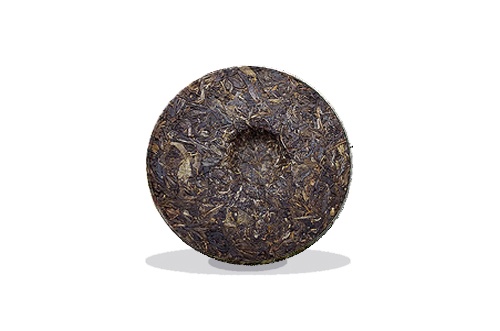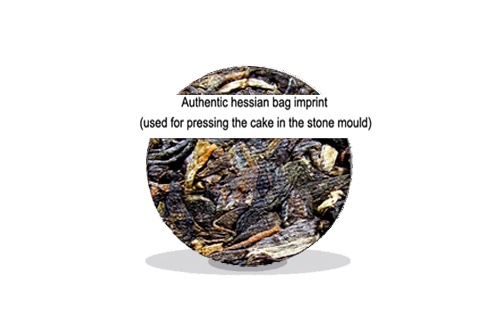2012 BING DAO little Pu erh cake (raw)
China - Xiban Shan mountain, Bingdao area, MengKu town, Lincang county, Yunnan province
This 100g premium BING DAO raw Pu erh tea cake was produced in the Bing Dao village at the foot of the mountains.
The whole tea leaves are hand-picked from 200-300 year old arbour trees. High altitudes of 2200 - 2300m and cool weather conditions produce a tea of exceptional quality.
Harvested in spring the leaves are sundried, rolled and pressed in the traditional way.
The resulting tea tastes delicate, pleasant and flowery with long lasting sweetness.
We recommend using between 5g to 8g per serving. Traditionally the first infusion rinses the tea and is discarded. Pu erh does not require a long infusion time, no more than five seconds for each brewing. Break off pieces from the tea cake using a letter opener or similar shaped knife and brew in a Gaiwan or Teapot.
- Name:
- 2007 BING DAO (raw)
- Chinese Name:
- 冰岛 - Bing Dao
- Origin:
- Xiban Shan mountain, Bingdao area, MengKu town, Lincang county, Yunnan province
- Harvest:
- Spring tea, picked before April 2012
- Pressed:
- 2012 - Langhe Tea Factory
- Picking standard:
- Whole, large wild leaves
- Dried tea colour:
- Dark slender tea leaves with white tips
- Aroma:
- Deep, raw Pu erh
- Liquor:
- Clear dark golden
- Taste:
- Delicate, sweet, flowery, pure
- Time of day:
- Afternoon, Evening, perfect after a meal to aid digestion
- Brewing:
- Multiple, 10x and more - to taste
Brew the perfect cup of
BING DAO (raw)

- 5 - 8 g / 300 ml

- 100 °C

- 3 - 5 minutes
Be the first to review 2012 BING DAO little Pu erh cake (raw). You first need to buy this product and then you can leave a review.
Share this product:
This 100g premium BING DAO raw Pu erh tea cake was produced in the Bing Dao village at the foot of the mountains.
The whole tea leaves are hand-picked from 200-300 year old arbour trees. High altitudes of 2200 - 2300m and cool weather conditions produce a tea of exceptional quality.
Harvested in spring the leaves are sundried, rolled and pressed in the traditional way.
The resulting tea tastes delicate, pleasant and flowery with long lasting sweetness.
We recommend using between 5g to 8g per serving. Traditionally the first infusion rinses the tea and is discarded. Pu erh does not require a long infusion time, no more than five seconds for each brewing. Break off pieces from the tea cake using a letter opener or similar shaped knife and brew in a Gaiwan or Teapot.













